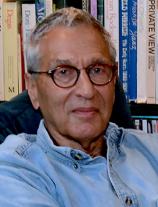The Return of the Pharaoh: From the Reminiscences of John H. Watson, M.D.
Review
The Return of the Pharaoh: From the Reminiscences of John H. Watson, M.D.
It is no secret that I am a huge Sherlock Holmes fan. What impresses me the most about Nicholas Meyer’s latest effort is that he refers to himself as the editor instead of the writer. Everyone in the know will immediately smirk at this literary wink to the great Sir Arthur Conan Doyle, who made it clear that he was merely utilizing the journals written by John H. Watson, M.D. to compose his stories.
In the case of THE RETURN OF THE PHARAOH, Meyer indicates on the front cover that the story is taken “From the Reminiscences” of Dr. Watson. I just love it! To that point, the Introduction is set in February 2020. Meyer receives a letter from Hikaru Mishima, the President and CEO of Kurosawa Heavy Industries, Ltd. in Tokyo. It makes reference to Watson’s journals, which instantly make Meyer recall the previous time he had adapted a novel out of those pages --- THE ADVENTURE OF THE PECULIAR PROTOCOLS.
"The finale of THE RETURN OF THE PHARAOH is a race, and readers will have difficulty catching their breath.... This is not only another great mystery to solve but a grand adventure."
The journals open with a quote from German philosopher Friedrich Nietzsche: “Nothing not written in blood is worth reading.” These pages are definitely infused with blood in a symbolic sense as Watson immediately refers to a case that he, Holmes and a man named Howard Carter have been working on that already involves seven known corpses.
At this point in his life, Watson is somewhat reluctant to leave his ailing wife, Juliet, but the call from Holmes can often become all-consuming and hard to avoid. It is 1911, and with the Egyptology craze in full force, a long cruise from London to Egypt is in order. Holmes is primarily tasked with locating a British royal: Michael, the Duke of Uxbridge. His strong-willed Brazilian wife and brother-in-law have hired Holmes, and they stay closely connected to the case.
Holmes decides to travel under the guise of Colonel Arbuthnot. Upon reaching Egypt, the group teams up with local experts on all things Egyptology. The investigation goes in many different directions, and at one point Holmes suspects that the Duke of Uxbridge may have been involved with an exotic dancer in Cairo. When they go the club where she performs, they are disappointed to find out that she is a no-show, which raises red flags for Holmes.
While looking through Watson’s notes, Holmes and Watson come across the term VR61, which is actually a misspelling for VK61, leading them to the Valley of Kings. The story starts to more closely resemble an Indiana Jones tale as the search for answers involves texts, maps and the legends spread by the locals. While traveling on the boat The Star of Egypt, they are involved in a crash that ends up taking 34 lives. Someone definitely does not want to be investigated by Holmes.
The finale of THE RETURN OF THE PHARAOH is a race, and readers will have difficulty catching their breath. Holmes constantly keeps Watson on his toes with his thought pattern and dialogue jumping all over the place. This is not only another great mystery to solve but a grand adventure. As “editor” Nicholas Meyer puts it, it turns out that there are worse ways to endure the COVID-19 lockdown than to spend it in the company of Sherlock Holmes.
Reviewed by Ray Palen on November 12, 2021
The Return of the Pharaoh: From the Reminiscences of John H. Watson, M.D.
- Publication Date: November 22, 2022
- Genres: Fiction, Historical Fiction, Historical Mystery, Mystery
- Paperback: 272 pages
- Publisher: Minotaur Books
- ISBN-10: 1250852706
- ISBN-13: 9781250852700




